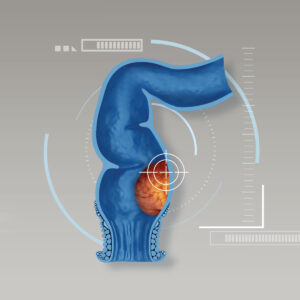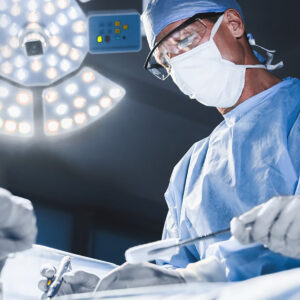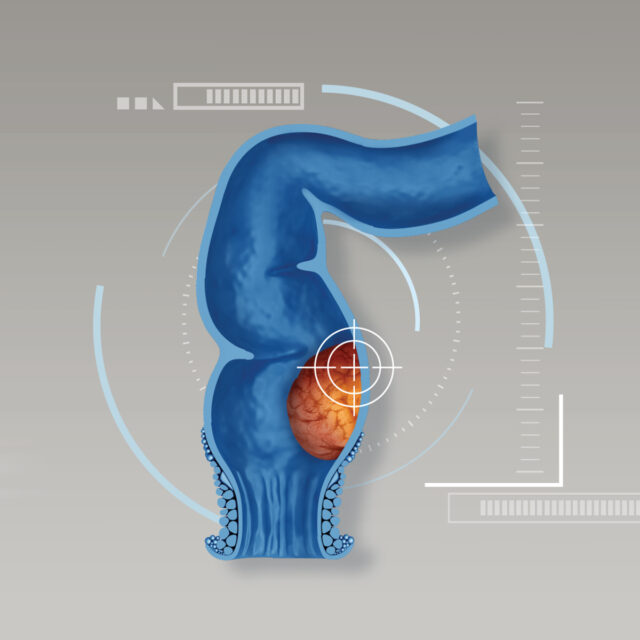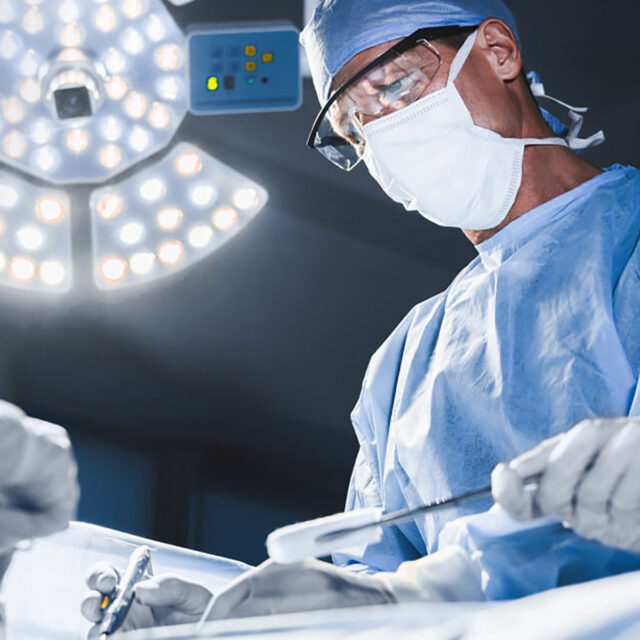We may develop a variety of infections in various parts of our body in our lifetime. Infections can occur anywhere, even in private areas. For example anal diseases, particularly anorectal abscesses, can literally cause a pain in the buttocks. Some people quickly overcome this condition with proper treatment while many others develop chronic or persistent infections because they are unaware of the unpleasant consequences. If not treated correctly and immediately, these diseases can create complications that may ruin your lifestyle.
A talk with Dr. Jirawat Pattana-Arun, proctologist at the Colorectal and Laparoscopic Colorectal Surgery of Bangkok Hospital will make you understand the nature of the acute anorectal abscess which can easily develop into a chronic infection called fistula in ano, including treatment methods that are effective and more advanced over time.
Pathophysiology
Our bowel system is very complex and consists of delicate tissues and nerves that are sensitive to pain. It involves the last phase of the digestive process, consisting of a collection of solid wastes (what’s left of from what we ate after the water and nutrients have been taken by our bodies) that collected in the rectum (the section of the digestive tract above the anus where stool is held before it passes out of the body) and are expelled from the body through the anus, which is the opening at the end of the digestive tract. A strong muscular ring, an autonomic nervous system called the anal sphincter, keeps the anus closed to prevent stool from leaching.
The walls of the anus are lined with glistening red tissues containing mucus glands which provide lubrication during bowel movements. Sometimes one of these glands is blocked and contaminated with different types of bacteria in the stool. The infected gland then develops into an abscess filled with pus, causing constant pain and swelling.
The saga of chronic discomfort
Unlike haemorrhoids, which is the swelling of the varicose vein in the anus and lower rectum, rectal abscess is literally a pain in the butt. The disease can be classified into anorectal abscess and fistula in ano.
Anorectal abscesses: Anorectal abscess is an acute sepsis at the rectum or anus. The cause of infection is similar to that of pimples. It can strike without warning and with no identified causes.
“From my experience, anorectal abscesses are occupational related in most male patients. Most of them are long-haul drivers who are seated in a damp environment for long stretches of time,” recounted Dr. Jirawat.
“The anorectal abscess may develop close to the opening of the anus or deep in the rectum. Symptoms include hardened tissue in the perianal area, discharge of pus from the rectum, a tender lump at the edge of the anus, constipation or severe pain associated with bowel movements. Perianal pain is usually constant, throbbing and feels worse when sitting down. Some patients may have fever.”
Fistula in ano: When infection is repeated and the abscess is opened spontaneously for drainage or surgery, a passage, called an anal fistula, is formed inside the muscle to link the interior of the anal canal or rectum with the skin surface. “It is a body mechanism to find a route to drain the pus out of the body. Most fistulas begin in a deep gland in the wall of the anus or rectum. Fistulas may occur singly or in multiples. Fistula in ano is common among people who have an anorectal abscess. Recurrent symptoms of infection are present at this stage,” Dr. Jirawat explained.
“Constant throbbing pain and swelling occur when fistulas become blocked and abscesses recur. Multiple small boil-like openings can be found around the anus. Pus or blood keeps oozing out of the openings continuously. Patients will experience discomfort, itching and soreness.”
Pay attention to your body
Our bodies transmit ailment signals through pain and many other instances of physical discomfort in order to get our attention. Presence of anorectal abscesses is to be suspected when all of a sudden a person has nagging pain in the anus and the symptoms quickly worsen over one or two days to the point that he/she is unable to sit comfortably. That person may experience constant throbbing or sharp pains, difficulty or pain when passing stool, fever and chills, bleeding or discharge of pus with stool, lower abdominal pain, redness around the anus, etc.
“Without immediate and correct treatment, anorectal abscess will develop into a chronic disease over a period of only six weeks. At this stage, treatment and the healing process will be complicated and time consuming,” he advised.
Diagnosis approach
Diagnosis of anorectal abscess begins with a medical history, palpation and physical examination via proctoscopic of the rectum to confirm the presence of the disease. Imaging studies can help determine the diagnosis in cases of a deep non-palpable abscess. The operations include pelvic CT scan, MRI, rectal ultrasound, or fistulogram. “These imaging tests are not necessary in some patients as the diagnosis can be made from a physical examination,” says Dr. Jirawat.
Designing treatments
“When the presence of anorectal abscess or fistula in ano is confirmed, the physician will plan a treatment process, focussing on getting rid of the crypto-glandular infection of the mucus glands, adequate drainage of the infection and preventing recurrences of the infection,” stated Dr Jirawat. The doctor added that oral antibiotics can control the infection on a temporary basis and may have a role in any recurrence of the disease.
For an abscess just under the skin, treatment consists of cutting into the abscess and draining the pus after a local aesthetic has been given. For a deeper abscess, the patient is usually hospitalized, and the abscess is drained in the operating room after general anesthesia has been given.
”In most cases even with proper treatment, an anorectal abscess may easily develop into fistula in ano. At this stage, surgery is required to prevent recurrence of the disease and incontinence,” Dr. Jirawat noted.
Definite treatment
Definitive treatment of a fistula aims to stop it recurring. Treatment depends on where the fistula lies and which parts of the anal sphincter it crosses. Current fistulotomy and seton placement are the most commonly practiced surgical methods. “Although such techniques provide virtually no recurrence advantage, they are invasive surgeries which cut through the anal sphincter, thus creating larger wounds that take longer to heal. But most importantly, patients have no control over their bowel movement,” revealed Dr. Jirawat.
“To preserve the anal sphincters, we have introduced a novel surgery method in our treatment program known as the Ligation of Intersphincteric Fistula Tract or LIFT. The concept of the surgery is to remove all infected cryptoglandular tissue in the intersphincteric plane without cutting open the anal sphincters and disconnect the fistula tracts close to the draining passage. The proctologist will approach the fistula tracts via intersphincteric groove. After locating the internal opening, the surgeon will cut the tract and suture ligation to close the internal opening at one end and make another suture ligation to secure closure of the defect in the external anal sphincter at the other end.”
“A widely appreciated surgery technique, LIFT is less invasive and simple to perform. With prompt treatment and regular checkups, most patients recover within a few weeks. However, the surgery has some downsides which can lead to a recurrence of the condition,” he explained.
“Whether to opt for fistulotomy, seton placement or LIFT, the bottom line is based on the decision of the patient who will select the method that best compliments their lifestyle.”
Experience makes precision
Anorectal abscess can be an embarrassing issue and bring both physical and mental agony to patients if not treated properly. Therefore, it is strongly advisable to see a proctologist as soon as possible. Experienced proctologists can rule out other anal diseases such as haemorrhoids with a simple visual inspection and can usually recognize abscesses by touch. “When your car has a problem with the exhaust pipe, you will take it to the muffler shop where you will get the muffler repaired by an exhaust mechanic – this treatment is the human equivalent of that,” Dr. Jirawut concluded.











